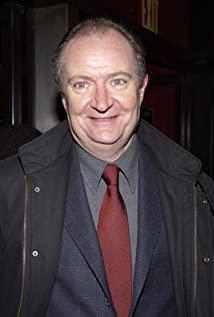"the lady in the van"
Crescent Street, Gloucester, has many great residents, but none more unique than Miss Mary Sherbot.
The narrative style of the film is rather mundane, with a simple narration combined with the necessary interludes to explain the plot: a delicate story told fluently, and the calm lyricism makes life full of interest.
I really like this narrative style, where the story is introduced with the plot, and the emotion is expressed with the narration. Simple and true, relaxed and happy. There are no obscure metaphors and brain-burning stalks that constantly set up pits; the waves are calm like a pebble thrown into the water; the fragrance is like a night locust flower; there is no trace of the wind blowing, only the extremely ordinary life and sincerity touch.
The film has three lines: the main line is the life of Ms. Mary and Mr. Bennett;
The mystery of Lady Mary's past and the man who regularly blackmails;
Mr. Bennett's mother and Ms. Mary.
1) Ms. Mary is educated and a lovely lady; Mary is a musician with a unique insight into music, and is a student of world-renowned masters; Mary will pray loudly and go to church to ask for redemption from the priest; she It exudes a nobility of a tramp, as if it won the award for the most elegant tramp in the world. One day she was living in Mr. Bennett's driveway. Their relationship is like the old truck painted yellow, with a lively and intimate worldly affection. They lived like this for fifteen years, knowing each other and seeing each other as confidants. This kind of feeling is gradually developed in the day-to-day getting along, between friendship and family, it seems plain, but it is especially tearful.
2) At the end of the film, Miss Mary's past is briefly explained, filling in the only big hole in the story. See it for yourself, it's another sad, tearful memory.
3) "Guilty people want to harm innocent people, and they end up harming themselves", Bennett's mother and Ms. Mary are dying day by day. Ms Mary continued to live gracefully in the driveway, while Bennett's mother lay in a nursing home bed. In the end, they all disappeared. The fifteen years of getting along is not a loss, but is taught, and in the process of getting along, life is more interesting.
Lots to mention: Mary's final piano playing, Mr. Bennett's monologue. A rare good movie, undeniably sincere. The female pianist who lives in the van, wish you heaven.
—————————————————————
"the lady in the van"
Crescent Street, Gloucester, has many great residents, but none more unique than Miss Mary Sherbot.
The narrative style of the film is rather mundane, with a simple narration combined with the necessary interludes to explain the plot: a delicate story told fluently, and the calm lyricism makes life full of interest.
I really like this narrative style, where the story is introduced with the plot, and the emotion is expressed with the narration. Simple and true, relaxed and happy. There are no obscure metaphors and brain-burning stalks that constantly set up pits; the waves are calm like a pebble thrown into the water; the fragrance is like a night locust flower; there is no trace of the wind blowing, only the extremely ordinary life and sincerity touch.
Madam Mary was educated and exuded the nobility of a tramp, and her relationship with Mr. Bennett was as lively and amiable as the old van painted in yellow. They lived like this for fifteen years, knowing each other and seeing each other as confidants. This kind of feeling is gradually developed in the day-to-day getting along, between friendship and family, it seems plain, but it is especially tearful.
Lots to mention: Mary's final piano playing, Mr. Bennett's monologue. A rare good movie, undeniably sincere. The female pianist who lives in the van, wish you heaven.
View more about The Lady in the Van reviews











